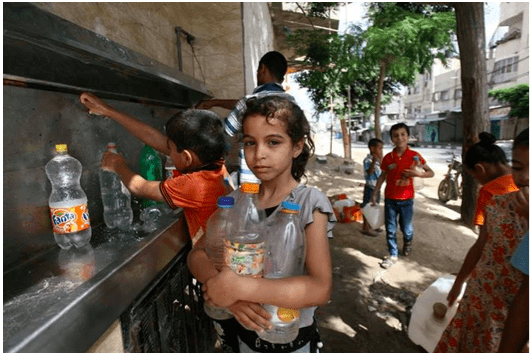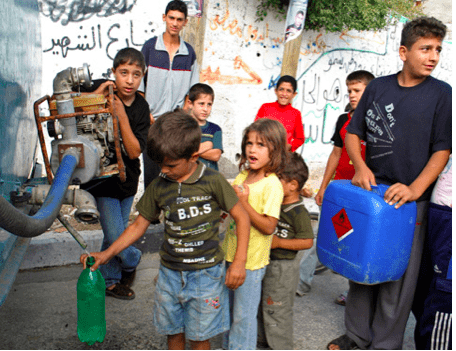Carly A. Krakow
Mada al-Carmel — Arab Center for Applied Social Research
Palestine/Israel
My fellowship research examines the intersection of environmental concerns and human rights violations in Palestine and Israel, specifically focusing on water access and water quality in the West Bank and Gaza. My central goal is to investigate how the occupation of the West Bank and Gaza, as well as the broader historical relationship between Israel and Palestine, frame the legal classification of the right to water for Palestinians. I also aim to explore why the denial of water rights is not being addressed in any substantive way by international governing bodies, and explore action that can be taken to improve this situation.

It is helpful to zoom out for a moment to explore this issue from within an international context. On June 25, 2014, the UN Office of the High Commissioner for Human Rights reported that water shutoffs in the US city of Detroit were a “violation of the human right to water and other international human rights.” Though the water access situation in Detroit differs from that in Gaza and the West Bank in many ways, all three have a major common denominator: infringement of the human right to water. The denial of water to Palestinians has never been classified in this way, however.
The war in Gaza in summer 2014, known as Operation Protective Edge, worsened the water crisis and highlighted the extent of the problem. It is important to note, however, that the issues of virtually non-existent water access and unsafe water quality are by no means new for the people of Gaza. Before the initiation of Operation Protective Edge, running water was available to only 25 percent of households on a daily basis in Gaza, and Gazans received this water for only six to eight hours at a time.
In the West Bank, diversion of water resources to settlements leaves approximately 50,000 Palestinians with a quantity equal to only the minimum amount that the World Health Organization recommends for short-term survival in an emergency situation. Furthermore, although only three percent of the Jordan River is located within Israel’s pre-1967 borders, Israel controls the majority of its water, and those in the West Bank do not have any access to it.

This summer will be my second research trip to Palestine and Israel. When I was there this past January, I conducted interviews in the West Bank to learn the perspectives of civilians and nonprofit workers regarding the water crisis and its daily effects. This summer, I plan to continue this research and extend my scope to include how limited access to resources including electricity impacts Palestinians with Israeli citizenship living inside Israel as well.
My host organization, Mada al-Carmel, based in the city of Haifa, works to analyze social and political issues facing Palestinians, “with particular attention to Palestinians within Israel’s 1948 boundaries.” I am extremely excited to both contribute to and learn from their research, and to expand the existing aspects of my research project while also venturing into new and challenging terrain.